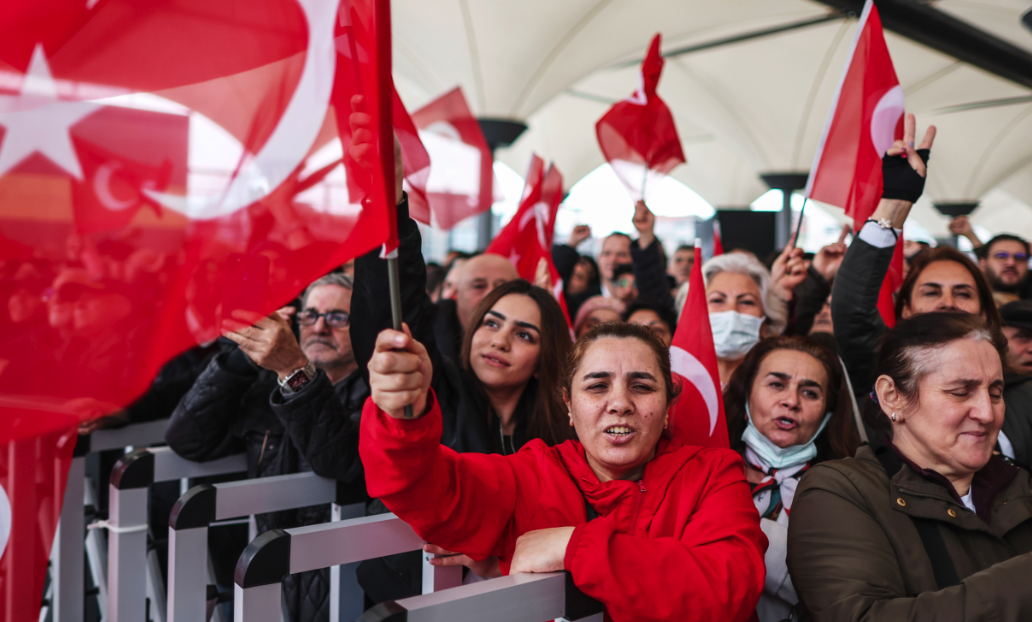Interview with Howard Eissenstat, a Turkey expert and an Associate Professor of History at St. Lawrence University and a non-resident scholar at the Middle East Institute. By Free Turkish Press on May 1, 2023.
What do you expect to happen in the elections? Light at the end of the tunnel? Easier or harder times ahead? Why?
Historians are really bad at predicting the future, but regardless of the outcome of the elections, Turkey is facing a watershed. An Erdogan victory would cement the current populist authoritiarianism and continue the degradation of civil liberties and the economy, along with the further corruption of basic institutions.
Having cemented his control over the country for another five years, I would expect that Erdoğan would begin grooming a successor, but who that might be, and what fractures might emerge within his coalition are anybody’s guess.
Clearly, figures like Soylu are already positioning themselves to take leadership. In this scenario, it is not at all clear to me that a “post-Erdogan Turkey” would necessarily be any improvement over what we have now.
That said, I don’t dismiss the chances of the opposition winning in May. If they do so, it is unclear how the current ruling parties will respond.
Would Erdoğan simply walk out of the palace? I am perhaps less sanguine about a peaceful transition than my Turkish colleagues, though I think it is a possibility. If the opposition wins, and there is a peaceful transition of power, then they will need to focus on the hard work of rebuilding the economy and basic institutions.
That will be a challenge for an unwieldy coalition, but they have a shared interest in seeing it done. Turkey has the basics to be truly successful country: if they can do the hard work, Turkey might well see better days.
On the other hand, I don’t discount a nightmare scenario either, one in which the transition of power is contested and popular violence seeps into the streets. This sort of upheaval has rocked Turkey not so many years ago; a return to those dark days would be a loss for everyone.
It is the Turkish Republic’s 100th anniversary. How can we explain why TR has tumbled into this massive crisis at every level?
The Turkish Republic’s hundred years have not always been easy ones. They include tremendous growth with repeated tragedies: coups, political violence, state massacre, repression, and economic upheaval. The centenary, like any landmark date, should be a time to consider both the successes and the tragedies.
The current crisis is striking, but I’m not sure it is the worst Turkey has seen. Nor am I really able to judge how to decide whether, say, the massacres of the 1930s, the pogroms of the 40s and 50s, the street violence of the 1970s, the various coups, or the current breakdown of state institutions is “worse.”
Clearly, the mismanagement and anti-liberal instincts of the current regime have undermined Turkey in the past two decades, but Erdoğan – like all would be authoritarians – did so by leveraging the weaknesses of the state and society that preceded him.
For a stable and peaceful Turkey, how do you see a solution, given the culture and demographic changes and the global commotion?
Regardless of who governs Turkey, its success depends on the reestablishment of basic institutions. This is vital for basic rule of law and for a sound economy.
Beyond that, the current government has sought to profit from political polarization—polarization that, admittedly, long preceded it—as a means to cement its power.
A Turkey that is more tolerant of difference is likely to be more successful, stable, and democratic. One can only hope that, whoever governs Turkey going forward, they commit themselves to those goals.

